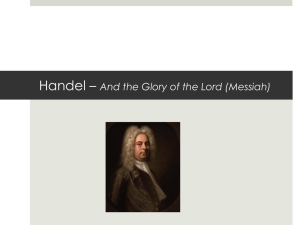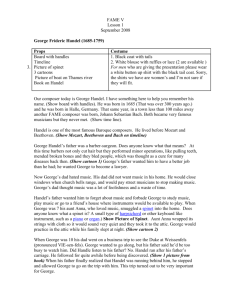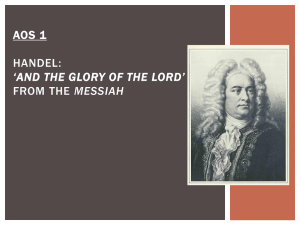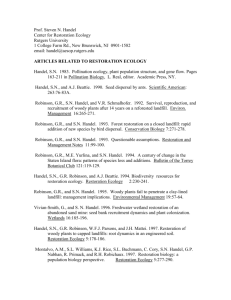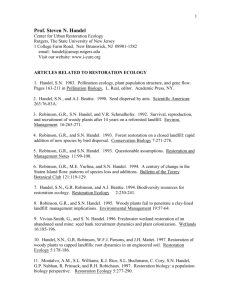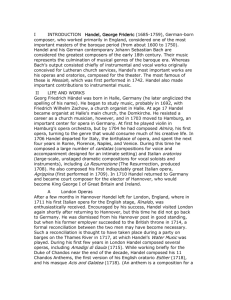Syllabus - Northwestern University
advertisement
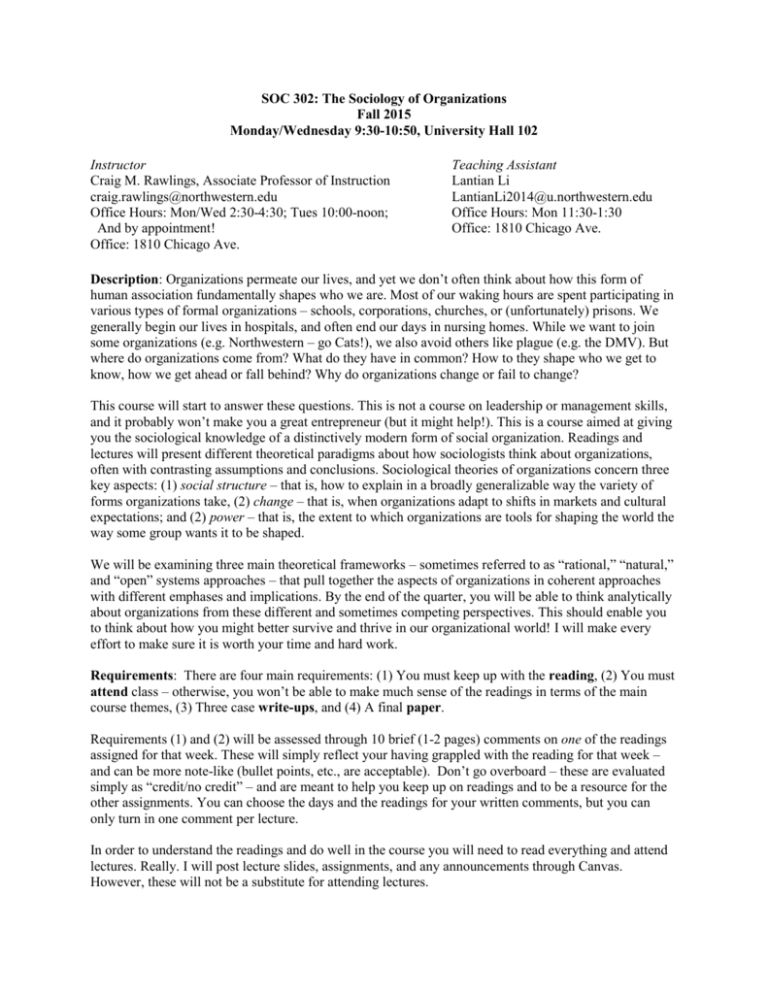
SOC 302: The Sociology of Organizations Fall 2015 Monday/Wednesday 9:30-10:50, University Hall 102 Instructor Craig M. Rawlings, Associate Professor of Instruction craig.rawlings@northwestern.edu Office Hours: Mon/Wed 2:30-4:30; Tues 10:00-noon; And by appointment! Office: 1810 Chicago Ave. Teaching Assistant Lantian Li LantianLi2014@u.northwestern.edu Office Hours: Mon 11:30-1:30 Office: 1810 Chicago Ave. Description: Organizations permeate our lives, and yet we don’t often think about how this form of human association fundamentally shapes who we are. Most of our waking hours are spent participating in various types of formal organizations – schools, corporations, churches, or (unfortunately) prisons. We generally begin our lives in hospitals, and often end our days in nursing homes. While we want to join some organizations (e.g. Northwestern – go Cats!), we also avoid others like plague (e.g. the DMV). But where do organizations come from? What do they have in common? How to they shape who we get to know, how we get ahead or fall behind? Why do organizations change or fail to change? This course will start to answer these questions. This is not a course on leadership or management skills, and it probably won’t make you a great entrepreneur (but it might help!). This is a course aimed at giving you the sociological knowledge of a distinctively modern form of social organization. Readings and lectures will present different theoretical paradigms about how sociologists think about organizations, often with contrasting assumptions and conclusions. Sociological theories of organizations concern three key aspects: (1) social structure – that is, how to explain in a broadly generalizable way the variety of forms organizations take, (2) change – that is, when organizations adapt to shifts in markets and cultural expectations; and (2) power – that is, the extent to which organizations are tools for shaping the world the way some group wants it to be shaped. We will be examining three main theoretical frameworks – sometimes referred to as “rational,” “natural,” and “open” systems approaches – that pull together the aspects of organizations in coherent approaches with different emphases and implications. By the end of the quarter, you will be able to think analytically about organizations from these different and sometimes competing perspectives. This should enable you to think about how you might better survive and thrive in our organizational world! I will make every effort to make sure it is worth your time and hard work. Requirements: There are four main requirements: (1) You must keep up with the reading, (2) You must attend class – otherwise, you won’t be able to make much sense of the readings in terms of the main course themes, (3) Three case write-ups, and (4) A final paper. Requirements (1) and (2) will be assessed through 10 brief (1-2 pages) comments on one of the readings assigned for that week. These will simply reflect your having grappled with the reading for that week – and can be more note-like (bullet points, etc., are acceptable). Don’t go overboard – these are evaluated simply as “credit/no credit” – and are meant to help you keep up on readings and to be a resource for the other assignments. You can choose the days and the readings for your written comments, but you can only turn in one comment per lecture. In order to understand the readings and do well in the course you will need to read everything and attend lectures. Really. I will post lecture slides, assignments, and any announcements through Canvas. However, these will not be a substitute for attending lectures. (3) In the first week, you will pick a specific organization or a type of organization that you think is interesting and may be important to you personally or professionally now or in the future. Premed students might consider a hospital where they work or want to work. Prelaw students might consider a law firm or a court. Others might choose a religious organization, a corporation, or a non-profit group. A more detailed prompt will be handed out in the first week; however, a few stipulations to consider from the start: (1) don’t use Northwestern university or another similar research university as these will be the examples used in a number of lectures, (2) your organization should be fairly large, but does not need to be huge (please see me or the TA if you have questions), and (3) having some experience within the organization is a plus but not necessary. (4) The final paper will be an 8-10 page (2,000-2,500 word) analysis that will adjudicate which of the three theoretical frameworks best describes your organization, as well as how you think the organization could be improved based upon the course content. You will be given a more detailed prompt in advance. Grades are computed as follows: Comments are 10% (10 × 1%); Case Write-Ups are 60% (3 × 20%); Final paper is 30%. Required Readings: Most of the assigned readings are in an edited volume by Michael J. Handel called The Sociology of Organizations: Classic, Contemporary, and Critical Readings (Sage Press, 2003). You can purchase or rent it through Amazon, and there are numerous used copies at other online retailers. Additional readings will be posted to Canvas. Other things to keep in mind: Late assignments without a documented emergency will be heavily penalized (1 grade per day, beginning immediately after the class or listed time due). All assignments should be double-spaced, with 12-point font, and 1-inch margins. All assignments are individually written. Feel free to study together; but all written work handed in must be your own. The internet has changed the nature of academic misconduct and led to more “borderline cases.” Suspected violations of academic integrity will be reported to the Dean’s Office. For more information on Northwestern’s academic integrity policies, please see http://www.weinberg.northwestern.edu/handbook/integrity/index.html. Additional Resources: Any student requesting accommodations related to a disability or other condition is required to register with AccessibleNU (accessiblenu@northwestern.edu; 847-467-5530) and provide professors with an accommodation notification from AccessibleNU, preferably within the first two weeks of class. All information will remain confidential. Topics and Readings (Subject to Change) I. Orientation & introduction (Week 1) Perrow, Charles S. 1972. Complex Organizations: A Critical Essay. New York: McGraw-Hill. Ch. 1, “Why Bureaucracy?” II. Organizations as rational tools (Weeks 2-3) A. Division of labor Smith, Adam. 1937[1776]. The Wealth of Nations. New York: Modern Library. Ch. 1-3. Taylor, “The Principles of Scientific Management” in Handel [2]. B. Bureaucracy Weber, “Bureaucracy and Legitimate Authority” in Handel [1]. Guillén, Mauro F. 1994. Models of Management: Work, Authority, and Organization in a Comparative Perspective. Chicago: University of Chicago Press. Ch. 2, pp. 30-58 C. Rationality’s Discontents Hochschild, Arlie. The Managed Heart: Commercialization of Human Feeling, Pp. 137-181. Harrison, Bennett. 1994. “Lean and Mean: The Changing Landscape of Corporate Power in the Age of Flexibility.” In Handel [26] Hochschild, Arlie. The Time Bind: When Work Becomes Home and Home Becomes Work. Ch. 4 (“Family Values and Reversed Worlds”) Pp. 35-52 III. Organizations as natural collectivities (Weeks 4-5) A. Human relations and the discovery of informal structure Homans, “The Hawthorne Experiments” in Handel [7] Burawoy, “Manufacturing Consent” in Handel [15]. B. Organizational change and adaptation Michels, “Organizations and Oligarchy” in Handel [17] Gouldner, Alvin. 1954. Patterns of Industrial Bureaucracy. New York: Free Press. Ch. 4 & 5. Selznick, Philip. 1957. Leadership in Administration. Evanston, IL: Row, Peterson. Ch. 1, “Introduction” Zald, Mayer N. and Patricia Denton. 1963. "From Evangelism to General Service: The Tranformation of the YMCA." Administrative Science Quarterly 8:214-234. IV. Organizations and environments (Weeks 6-8) A. Introduction B. Relations among organizations Williamson, "The Economics of Organization: The Transaction Cost Approach" in Handel [22]. Perrow, “Markets, Hierarchies, and Hegemony” in Handel [23]. Pfeffer and Salancik, “The External Control of Organizations” in Handel [18]. C. Organizational populations Carroll and Hannan, “Density Dependent Processes” in Handel [20] Carroll, Glenn and Anand Swaminathan. 2000. "Why the Microbrewery Movement? Organizational Dynamics of Resource Partitioning in the American Brewing Industry." American Journal of Sociology 106:715-65. D. The institutional environment Scott, W. Richard and John W. Meyer. 1994. "Environmental Linkages and Organizational Complexity: Public and Private Schools." Pp. 137-159 in Institutional Environments and Organizations, edited by W. R. Scott and J. W. Meyer. Thousand Oaks, CA: Sage. Meyer, John W. and Brian Rowan. 1977. "Institutionalized Organizations: Formal Structure as Myth and Ceremony." American Journal of Sociology 83:340-363. DiMaggio and Powell, "The Iron Cage Revisited: Institutional Isomorphism and Collective Rationality in Organizational Fields" in Handel [19]. V. Organizational Deviance & Inequalities (Weeks 9-10) A. Organizational “Accidents” Perrow, Charles. 1984. “Normal Accidents: Living With High-Risk Technologies.” In Handel[32] Vaughan, Diane. 1998. “Rational Choice Situated Action, and the Social Control of Organizations: The Challenger Launch Decision.” In Handel [33] B. Social Networks & Social Capital Uzzi, B. and S. Dunlap. 2005. "How to Build Your Network." Harvard Business Review 83:5360. Small, Mario. 2009. Unanticipated Gains: Origins of Network Inequality in Everyday Life. Chicago: University of Chicago Press. Selections. C. Workplace Bias and Discrimination Kanter, Rosabeth Moss. 1977. “Men and Women of the Corporation.” In Handel [28] Bielby, William T. 2000. “Minimizing Workplace Gender and Racial Bias.” Contemporary Sociology 29: 120-9 Correll et al. “Redesigning, Redefining, Work.” Work and Occupations 41: 3-17. D. Comparative and Global Inequalities Allison, Anne. Nightwork: Sexuality, Pleasure, and Corporate Masculinity in a Tokyo Hostess Club. Ch. 3 (“A Type of Woman”) pp.57-76, and Ch. 5 (“The Meaning and Place of Work”) pp. 91-101. Ehrenreich, Barbara, and Arlie Hochschild. Global Woman: Nannies, Maids, and Sex Workers in the New Economy. Pp. 1-13 (“Introduction”), and pp. 85-103 (“Maid to Order”) Schedule of lectures and readings (subject to change if we get behind or ahead): Week 1 2 3 4 5 6 7 8 9 Dates Topics Welcome Why Study Organizations? Rationality Handel Chapters Canvas Perrow 1, 2 Rationality 26 Natural Collectivities 7, 15 Smith; Guillen Hochschild; Hochschild Gouldner 10/19 10/21 10/26 10/28 11/2 11/4 11/9 11/11 11/16 11/18 11/23 11/25 – No Class Natural Collectivities Open Systems 17 Open Systems 20 Open Systems 19 Deviance & Inequalities Deviance & Inequalities 32, 33 11/30 12/2 – No Class Course wrap-up 9/21 9/23 9/28 9/30 10/5 10/7 10/12 10/14 10 11 Selznick; Zald 22, 23, 18 28 Carroll & Swaminathan Scott & Meyer; Meyer & Rowan Uzzi & Dunlap; Small Bielby; Correll et al.; Allison; Ehrenreich & Hochschild Final Paper is due in my office by Thursday, December 10th at 5:00 p.m.

